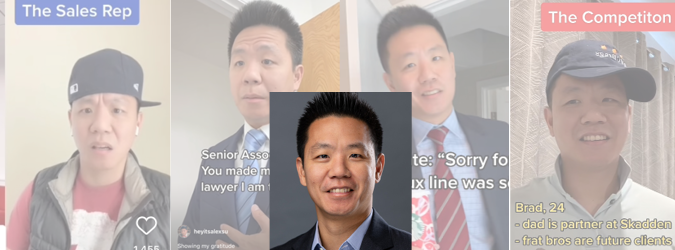Ethics Opinion 1251
1.12.2023
Topic: YouTube channel; general legal information; advertising
Digest: As a general proposition, creating videos for a YouTube channel to educate the public or legal profession about matters of general or specific interest is a permitted activity and does not necessarily constitute “advertising” as that term is defined in the Rules of Professional Conduct, but in some circumstances it might constitute advertising.
Rules: 1.0(a), 7.1
FACTS:
- The inquirer is an attorney admitted in New York and a non-U.S. jurisdiction who maintains a law office in New York. She would like to create a YouTube channel to offer content about “being a lawyer in the United States, work/life balance, tips for law students and general legal information for the public.” The inquirer intends to use her full name on the channel, which she hopes to generate income through sponsorships and affiliate links.
QUESTIONS:
- May an attorney create a revenue-producing YouTube channel, linked to the attorney’s professional practice name, that provides general legal information to the public and the profession?
OPINION:
- It is not unethical for a lawyer to write articles, give lectures, or write a blog about topics of general or specific interest, including the law. In fact, such activities are encouraged and protected, reflecting well on the legal profession and its members as examples of lawyers maintaining interest and involvement in their communities and seeking to contribute to the general well-being of the public. An attorney so inclined, however, must be mindful of Rule 7.1 of the New York Rules of Professional Conduct (“Rules”) which would impose certain requirements if the content of the medium were deemed to constitute “advertising.”
- Advertising is defined by Rule 1.0(a) as:
any public or private communication made by or on behalf of a lawyer or law firm about that lawyer or law firm’s services, the primary purpose of which is for the retention of the lawyer or law firm. It does not include communications to existing clients or other lawyers.
Comment [7] to Rule 7.1, states in pertinent part:
Topical newsletters, client alerts, or blogs intended to educate recipients about new developments in the law are generally not considered advertising. However, a newsletter, client alert, or blog that provides information or news primarily about the lawyer or law firm (for example, the lawyer or law firm’s cases, personnel, clients or achievements) generally would be considered advertising. - In conformance with this standard, in Y. State 848 ¶ 19 (2010) we stated that whether a law firm’s educational newsletter would constitute attorney advertising depended on “the content of the communication, the intent (purpose) of the communication, and the targeted audience of the communication.”
- Here, without more facts, the committee cannot determine whether the inquirer’s YouTube videos would constitute advertising under this three-part standard (content, intent, and audience) and, accordingly, would be governed by Rule 1. To the extent that the YouTube videos provide general legal information for the public about “being a lawyer in the U.S.” and “work-life balance,” the videos would not constitute advertising. To the extent, however, that the YouTube videos include information and news about the lawyer and her law practice for the primary purpose of retention of the inquirer, they would constitute advertising.
- If the content of the YouTube channel does not otherwise constitute advertising, publishing and linking the inquirer’s name and contact information with the channel will not, in and of itself, push the content of the videos across the line into advertising. As provided in Comment [8] to Rule 7.1 in the context of certain law firm marketing and branding:
Some communications by a law firm that may constitute marketing or branding are not necessarily advertisements. For example, pencils, legal pads, greeting cards, coffee mugs, T-shirts or the like with the law firm name, logo, and the contact information printed on them do not constitute “advertisements” within the definition of this Rule if their primary purpose is general awareness and branding, rather than the retention of the law firm for a particular matter. (Emphasis added.)
- That the inquirer may receive income from her YouTube activities by way of sponsorship or advertising does not alter the There is nothing per se improper about a lawyer engaging in two separate income-generating businesses, only one of which is the practice of law. If the inquirer were to make referrals on her YouTube channel to other attorneys or professionals, however, which resulted in referral fees or other forms of compensation being paid to the inquirer, she might be subject to other rules, such as Rule 1.5(g) (governing a division of fees between lawyers in different firms). We do not address those other rules here.
- Another concern would arise if the inquirer’s YouTube channel has features similar to social media sites that, under certain conditions, allow third-party viewers to interact with the site by posting comments or questions. If that is the case, the inquirer must proceed carefully in responding to such viewers and must not provide individual legal advice or disclose confidential information, even if the initiating viewer may have done See N.Y. State 899 (2011) (a lawyer may not engage in solicitation on interactive social sites on the Internet but may respond with a private written proposal outside the site; and a lawyer may provide only general answers, not individual advice, in response to legal questions on the site).
- Finally, if the inquirer’s YouTube channel will be linked to her website or other forms of firm advertisements, it is worth considering whether it would be prudent to label the videos as “Attorney Advertising”, as required by Rule 7.1(f), even if such disclaimers are not technically required. See Y. State 1039 ¶ 9 (2014) (“We do not opine on whether the [attorney advertising] label is actually required here, but we recognize that many lawyers take a conservative approach to whether educational material prepared for clients is an advertisement and thus should bear the label ‘attorney advertisement’ as required by Rule 7.1(f)”).
CONCLUSION
- As a general proposition, creating videos for a YouTube channel to educate the public or legal profession about matters of general or specific interest is a permitted activity and does not necessarily constitute “advertising” as that term is defined in the Rules of Professional Conduct, but in some circumstances, it might constitute advertising.
(14-22)





